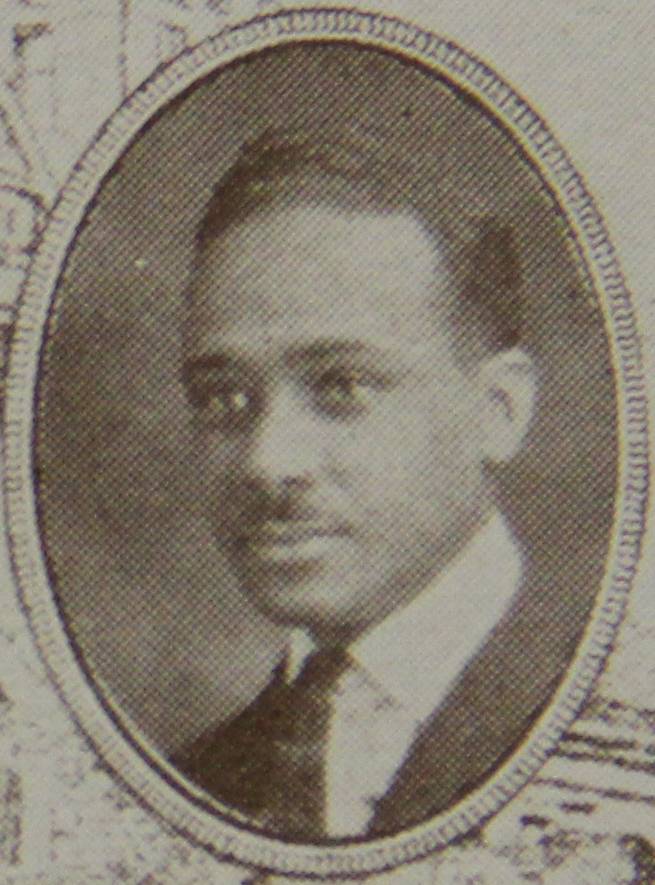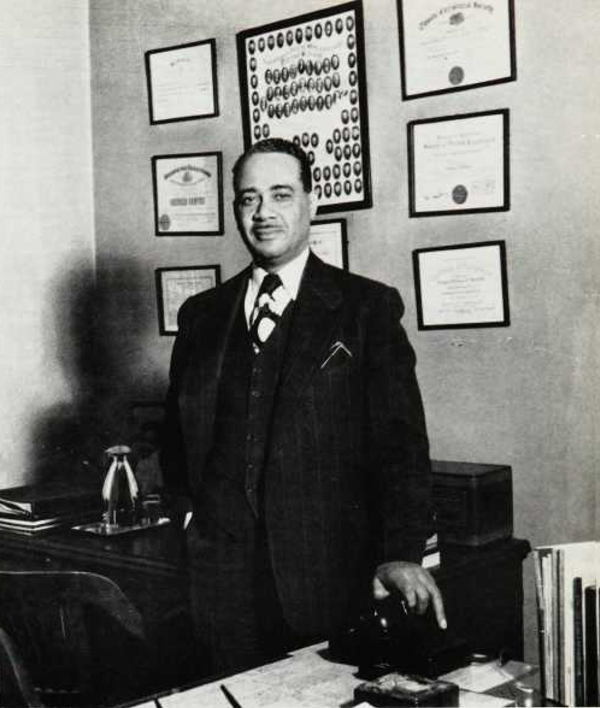Jim Crow Museum
1010 Campus Drive
Big Rapids, MI 49307
[email protected]
(231) 591-5873
Why is the Jim Crow Museum at Ferris State University?
We have heard that question many times. It is likely that many of the people who have asked that question are unaware of the social justice work of Woodbridge Nathan Ferris, our founder. He was a true visionary and ardent supporter of education for all people, including students of color.
From 1910 through 1928, a number of African American students attended Ferris Institute; many of them came from Hampton Normal and Agricultural Institute (known today as Hampton University). They came to Ferris to take college preparatory courses. Some remained to complete degrees; others left and completed their degrees at other northern universities. Among this collection of young African American students were men who later would serve as editors of national newspapers, argue cases before the United States Supreme Court and advise presidents and civil rights leaders. Those Hampton-Ferris students changed the lives of many and the direction of a nation. In the coming months we will share stories about some of these pioneering African Americans who attended the Ferris Institute.

Russell A. Dixon was born in Kansas City, Missouri. His father, William James Dixon, was a Pullman Porter and the inventor of the re-railer, a device that puts derailed cars back on the tracks—it was used worldwide. The elder Dixon’s invention was featured in the 1942 radio series Freedom’s People: The Negro Worker (Indianapolis Recorder, January 17, 1942).
Russell A. Dixon attended Hampton Institute from 1919 to 1920; he was an exceptional student and a player on the football team. He finished his undergraduate education at the Ferris Institute in 1923. While at Ferris, Woodbridge N. Ferris, the Institute’s founder, and “took a personal interest in this ambitious young man” and advised Dixon to continue his education at Northwestern University (CDS Review pg. 28, 1973). Dixon became the first African American to earn an advanced degree in dentistry from Northwestern in 1933 (Indianapolis Recorder, July 4, 1936).
Dixon is best known for his work as dean of the College of Dentistry at Howard University, a position he began in 1931. During his 37-year tenure, the College of Dentistry developed into one of the foremost institutions of dental education in the United States. In 1960, more than half of the nation’s 1,681 African American dentists were graduates of the Howard University College of Dentistry (Ebony Magazine, January 1960).
As dean of Dentistry at Howard, Dixon started the first school of dental hygiene openly available to African Americans in the United States. Dixon was passionate about providing dentistry in the southern states of the United States where there was a shortage of dental professionals. Dixon noted in 1949 that two-thirds of the dental practitioners were in the north where only one-third of the population resided (Chicago Defender, Jan 1, 1949). Dean Dixon appeared before a Senate sub-committee in 1945 to advocate for the passage of bills designed to give grants intended to provide support for dental care for underserved populations and to create a national dental institute of research (Chicago Defender, July 7, 1945).
Although some critics did not consider Russell A. Dixon qualified to serve as dean when he was appointed in 1931, because he “has never practiced his profession independently of a school,” he proved his doubters wrong with his amazing accomplishments during his tenure at Howard University (New York Age, August 22, 1931).

Dixon was a national leader in his field, writing numerous papers on dentistry, serving as president of the Pan-American Odontological Association and the National Dental Association, and a founding member of Howard's Omicron Kappa Upsilon National Honor Society. Surgeon General Thomas Parran appointed him to the Medical and Health Committee of the National Defense Council, and President John F. Kennedy appointed him to a four-year term as a regent of the National Medical Library (Jet Magazine, 1976). Dixon was a part of National Dental Association group that challenged the American Dental Association (ADA) in 1958 for not allowing African American dentists to become a part of the organization (Pittsburgh Post-Gazette, August 5, 1958). After a long battle, the ADA voted to allow African Americans in the organization in 1962 (Pittsburgh Courier, November 10, 1962).
Today, Howard University students in the college of Dentistry study in the Russell Alexander Dixon School of Dentistry, a building which was dedicated to the legacy of Russell A. Dixon in 1981 (paulrwilliamsproject.org).
Russell A. Dixon an advocate for dental education, racial integration, and gender equality, and he mentored others—especially racial minorities and women—to become professionals committed to improving this country. In an interview with a former dean of Dentistry at Howard University, Dr. Jeanne Sinkford—the first woman dean of a U.S. dental school—Dr. Sinkford stated that dean Dixon was an important mentor in her life and professional development. Dixon used mentoring programs to build a top-flight faculty at Howard University. Dean Dixon utilized an endowment to provide funds for advanced training for dental students who in turn would be obligated to return to the University to teach (Global Health Nexus, 2007).
The Ferris Institute President, Woodbridge N. Ferris became a lifelong friend, mentor and counselor of Dr. Dixon (Dummett, 1989). Russell A. Dixon was awarded an Honorary Doctorate from Ferris State College in 1965.
We at Ferris State University are proud of Dr. Dixon’s accomplishments and are honored to call him an alumnus of the University.
Franklin Hughes and David Pilgrim
Jim Crow Museum
2017
Chicago Dental Society (Ill.). (1973). CDS review. Chicago: Chicago Dental Society.
Dr. R. Dixon, Howard Dean Emeritus, Dies. (January 22, 1976) Jet Magazine, pg. 44.
Howard University, Washington, D.C. (n.d.).
More than half of U.S. Negro dentists are it’s graduates. (1960, January). Ebony Magazine, 21-28.
Passage of Dental Aid Bill is Urged. Chicago Defender, July 7, 1945.This URL will direct you into MyFSU. To see this article log into MyFSU. You will betaken into a Library search tool. Search for Passage of Dental Aid Bill AND Chicago Defender for July 7 1945.